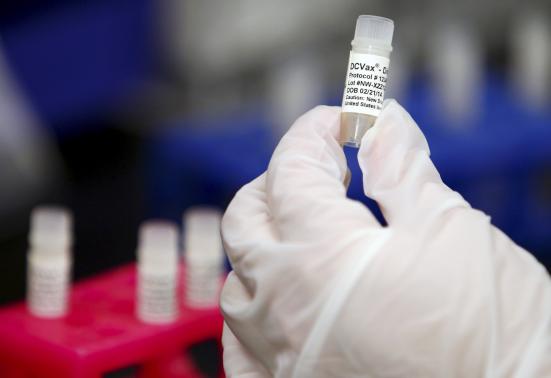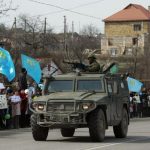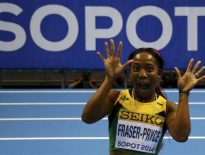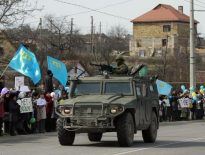(Reuters) – German health regulators have granted Northwest Biotherapeutics Inc special permission to sell its experimental brain cancer drug, DCVax-L, in the country, even though the small U.S. biotechnology company has not yet completed its late-stage trial of the immunotherapy.

Shares of Maryland-based company jumped nearly 21 percent to $7.29 in heavy trading on Monday on the Nasdaq.
The special hospital exemption in Germany would allow Northwest to sell DCVax-L for five years, and to seek renewed approval afterward, Northwest Biotherapeutics Chief Executive Officer Linda Powers said in an interview. The company has not yet requested or received formal marketing approval for its product.
The exemption allows Northwest to sell DCVax-L through hospitals and their outpatient clinics to patients with all severities of cancer that begin in the brain, even though it is only being tested in patients newly diagnosed with the most severe form of the disease, called Glioblastoma multiforme (GBM).
It is the first hospital exemption in Germany for a product never previously on the market, Powers said. She hopes it will encourage other European nations to look favorably on DCVax-L.
The European Union has encouraged member countries to create the hospital exemptions as a way of fostering use of breakthrough biotechnology drugs that have not yet won formal marketing approval.
Patients taking DCVax-L in small informal trials, along with standard care, lived 2.5 times as long as the typical patient taking standard treatment alone.
Northwest Biotherapeutics’s fortunes are already being closely watched on Wall Street, where company shares had surged 60 percent this year before Monday’s announcement. The company has reported promising results for the drug in a tiny cadre of patients, but skeptics question whether they will be borne out in a larger population.
Interim data from a late-stage trial had been expected last month, but has not yet become available, causing concern among investors. The company said on Friday that an independent data safety monitoring board had recommended the trial continue, based on its safety review.
The German regulator, known as the Paul-Ehrlich-Institute (PEI), said DCVax-L can be used after patients receive the standard care for brain cancer, which consists of surgery, radiation and treatment with Merck & Co Inc’s Temodar chemotherapy.
At least 3,000 cases of GBM are seen in Germany each year, Powers estimated. She added that many other patients have lower- grade brain tumors that will also be eligible for treatment with DCVax-L.
Northwest Biotherapeutics plans to begin selling its drug in the next few months in Germany, and to ramp up production at its manufacturing plant in Leipzig, Powers said.
IMPORTANT VALIDATION, HIGH PRICE
This is an important validation of DCVax-L, said Powers, who described the German regulator as among the toughest in Europe. They realize we’re still in our Phase III trial, but appear satisfied with the underlying biology of DCVax-L and the glimpses of effectiveness that were seen in early-stage trials.
DCVax-L initially could be priced higher than Temodar, which costs about $65,000 to $70,000 a year. Powers said a premium price for DCVax-L was warranted because of signs of effectiveness seen in the informal early-stage trials.
The regulator apparently opened the door to DCVax-L because data from the small earlier trials suggested advantages over standard treatments that offer little help to patients, Powers said. Industry analysts say the treatment could potentially be worth more than a billion dollars in annual sales if it eventually wins full marketing approval in Europe and the United States.
When you add Temodar to surgery and radiation you get an additional 2.5 months of survival, Powers said, allowing the average patient to survive 14.5 months.
By contrast, the average patient taking DCVax-L plus standard treatment in the smaller Phase I/II trial survived three years, without additional serious side effects. But data from that study, which involved 20 patients with newly diagnosed GBM, were not considered statistically significant because of the small size and informal nature of the trial.
DCVax-L is among an emerging new crop of drugs that coax the body’s own immune system to track down and kill cancer cells. More specifically, it harnesses dendritic cells, or master cells of the immune system that give marching orders to its soldiers, including t-cells and b-cells, which make antibodies.
The treatment consists of an individual patient’s immature dendritic cells being drawn from the blood and mingled in a laboratory dish with dozens of antigens, or proteins, from brain tumor tissue of the patient obtained in surgery.
When purified and injected back into the patient, DCVax-L is meant to prompt t-cells and b-cells to leave the lymph nodes and fan out through the body, seeking and attacking cells having the target antigens.
(For a graphic, click: link.reuters.com/cex86v)
Northwest Biotherapeutics expects to report complete data from its formal late-stage trial of DCVax-L in 2015, Powers said. The Phase III study, which began in 2008 and is being conducted in Europe and the United States, involves 312 patients who were newly diagnosed with GBM and received standard therapies.
If we meet the goals of the trial, we would plan to apply for marketing approval in Europe and the United States, Powers said.
Separately, German’s centralized government reimbursement authority has authorized Northwest Biotherapeutics to negotiate reimbursement for DCVax-L, Powers said. She added that six major hospital centers in Germany, anticipating the hospital exemption, have applied to be eligible for reimbursement for the product.
At least 12,000 patients a year develop GBM in the United States, along with a similar number in Europe, Powers said.
Northwest Biotherapeutics is pushing ahead despite two high-profile disappointments of dendritic cell-based therapies from ImmunoCellular Therapeutics Ltd and Dendreon Corp.
(Reporting by Ransdell Pierson; Editing by Jeffrey Benkoe)





